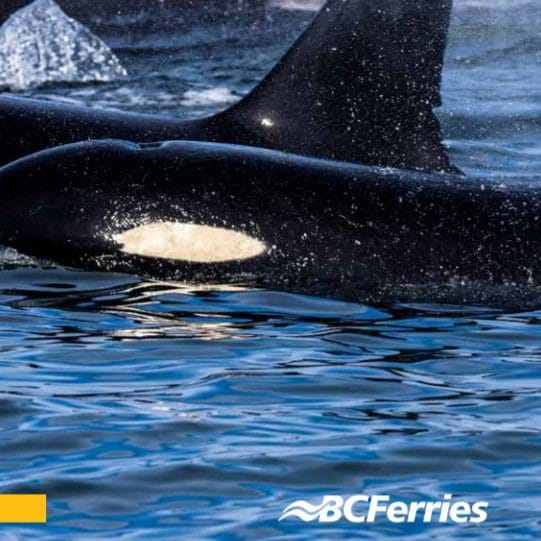
Long-term underwater noise management plan released by BC Ferries
BC Ferries is aiming to reduce its overall underwater radiated noise (URN) by half with its new long-term management plan. The 50% reduction is a major goal considering there currently are no limiting standards for URN emissions from Transport Canada (TC) or the International Maritime Organization (IMO).
By 2022, BC Ferries plans to have six new battery-electric hybrid Island Class vessels in service. By 2023, it plans to install three hydrophones in different locations to enhance the knowledge already gathered about URN and the presence of whales. Other plans include working with Fisheries and Oceans Canada (DFO) and Ocean Wise to add Whale Trail signage at several terminals. BC Ferries will also update the Whales in our Waters: Safe Navigation in the Presence of Whales online tutorial, a program BC Ferries developed collaboratively with the Port of Vancouver, DFO, Ocean Wise, and the U.S. National Oceanic and Atmospheric Administration (NOAA) and uses to train all crews. The crews voluntarily report cetacean sightings with the BC Cetacean Sightings Network.
BC Ferries will continue to work with regulators and scientists to identify new ways its ferries can operate to protect whales, while still meeting the obligations to the communities that BC Ferries serves.
Located on the shores of the Salish Sea, BC Ferries was among the first to take proactive measures to reduce UNR to protect whales, including the Southern resident killer whale. With almost 40 ferries within its fleet, BC Ferries committed to first understanding how its operations affect whales and then to reduce URN while maintaining safe, reliable and sustainable operations.
All the actions to date and those planned for the future are based on three key components: conservation and operational measures; understanding and mitigating URN; and, contributions to the management of URN in Canada and internationally.